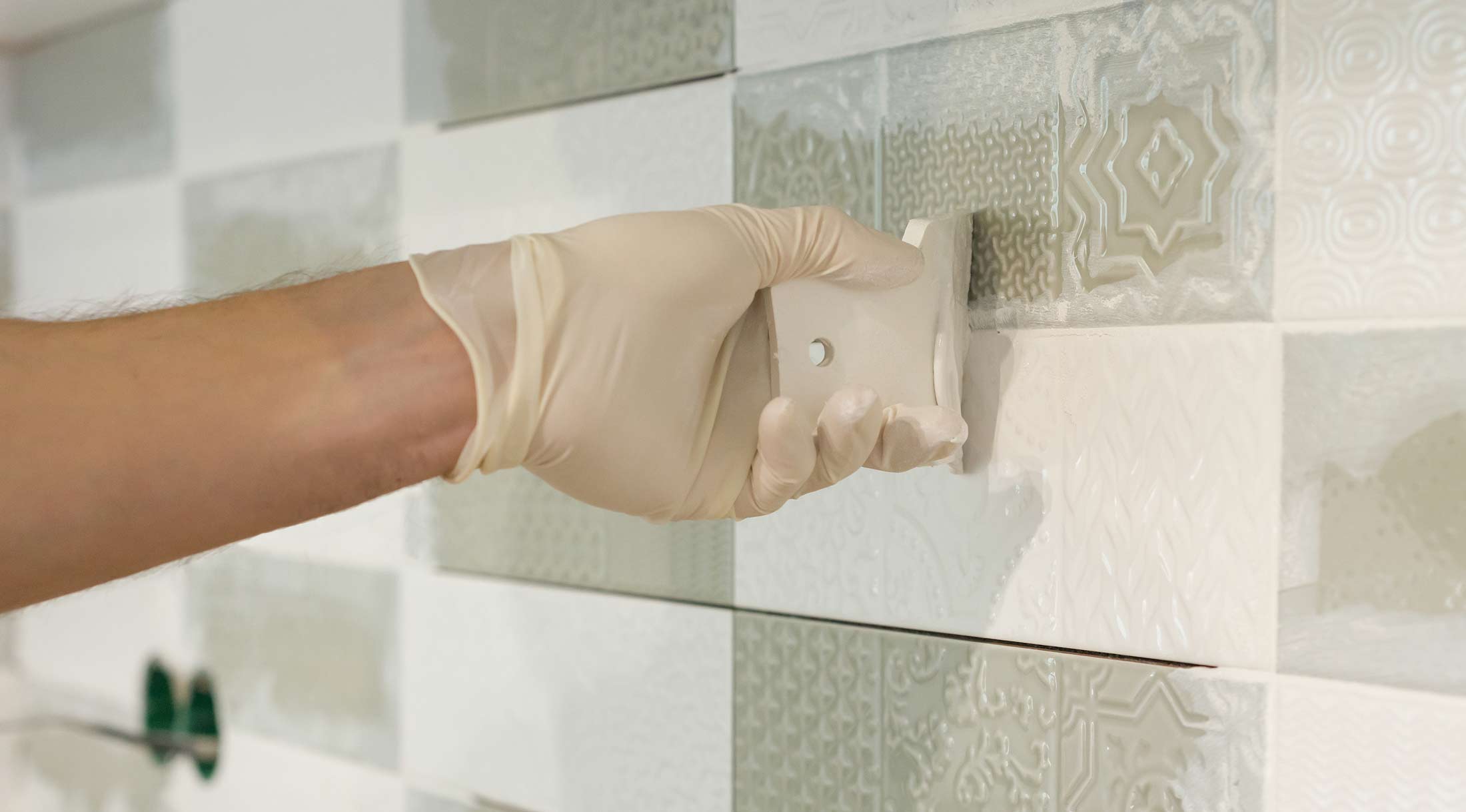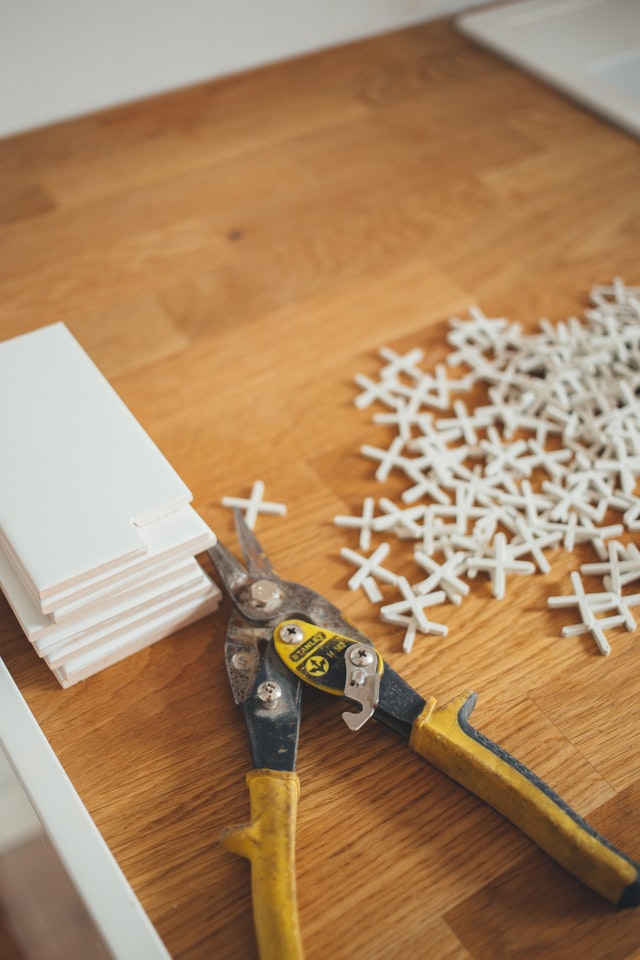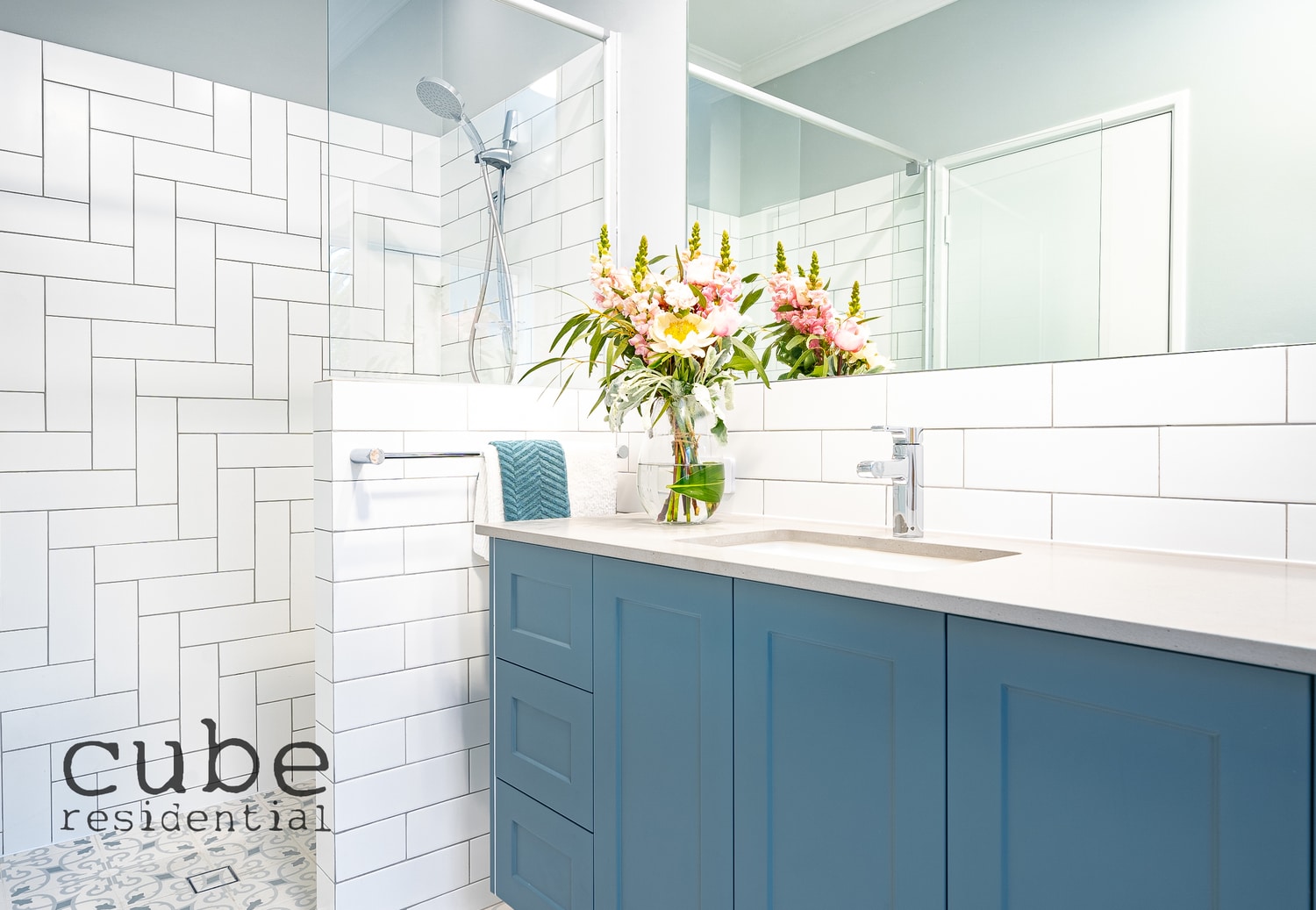Any ceramic tile project will use some form of grout to fill the gaps between the tiles and to hold it all together. Grout choice is just as important as your tile choice, so it pays to know which grout will work best for your tiles and deliver the best result.
The two most common types of grout are cement grout and epoxy grout. Let’s compare the two to help you better understand your options when tiling your floors or walls.

What is cement based grout?
Cement based grout is the most common type of grout and the least expensive. It is made out of a mixture of cementitious powder, sand and water and comes in a sanded and un-sanded form.
Un-sanded grout tends to have a smooth texture. It is created from fine powders and is generally used to join tiles that have seams between 1-1.5mm wide. Sanded grout contains fairly large sand particles that can be seen, often with a gritty look and feel to it. The sand in this grout provides extra bonding that makes it harder to crack. Sanded grout is mostly used for seams 1.5mm or wider.
When using cement grout you should seal it after application to prevent staining. Cement grout is not recommended for porous tiles like natural stone, because this type of surface combined with the grout is likely to stain.
What are the pros and cons of cement based grout?
There are both advantages and disadvantages to choosing a cement based grout. Deciding whether to go for cement grout can come down to a few things such as:
- Easy to install so it is great for a DIY job
- Easy to clean – after installation, all you need is a wet cloth or, at worst, some light scrubbing to remove grout residue from your tiles.
- It’s cheaper compared to epoxy grout
- Wide choice of colours
- Cement grout has a thicker consistency, so it can hold up well on any wall installation, even in the cases with wider gaps as it shrinks less and bonds well.
- Needs to be sealed or a grout booster added to prevent staining, mildew and mould (refer to What is a great additive below)
- Poor colour consistency – different factors such as the minerals in the water, how you mix the grout and humidity can affect the colour of the grout
- Not waterproof – excessive exposure to water or moisture such as in bathrooms can cause damage to the grout, due to presence of porous features
- Brittle – corners will crack and flake out over time or crumble if not installed properly

When should you use epoxy grout?
The stain and chemical resistant properties of epoxy grout make it suitable for high traffic areas such as schools, healthcare facilities, hospitality industry, commercial and industrial settings. \
They are also ideal for environments that experience excessive amounts of humidity or severe cold temperatures.
What is a grout additive?
A grout additive is a water based acrylic liquid added when mixing grout together to make the grout stronger, enhance the colour and make it flexible, which will eliminate cracks in your grout. Grout additive also reduces the porosity of the grout, making it easier to clean and minimising the growth of mould on the surface. We highly recommend adding a grout additive to cement based grout.
Be mindful when using grout additives in cement grout as it sets the grout off faster and there for is required to be cleaned as you go along. Do not leave it until after it has dried to clean off.
Why does grout crack?
Grout crack is common and happens mainly due to movement between two surfaces. You may not know this, but each material in your home is continually moving in tiny increments as a result of humidity, foundation settling, temperature and other factors. If grout in the kitchen or bathroom is a rigid material, it will crack. For example a tiled corner meeting another tiled corner can crack if there is movement in both of the walls due to the above mentioned factors. Or a join where a bathtub and tile meets has pressure applied to it where the bathtub is more flexible and the tile grout not so a crack will form between the two.
Choosing the right grout for your project makes all the difference to the final product. By talking to the professionals at Ceramic Tile Supplies, you’ll get the right advice on the products that will best fit your needs and budget.
Perth’s ceramic tile specialists
Be inspired by our extensive range of stunning bathroom tiles, kitchen tiles, floor and wall tiles. Browse our collection, visit our Myaree and Wangara showrooms to view the full range of tiles on display or book a one-on-one consultation.

